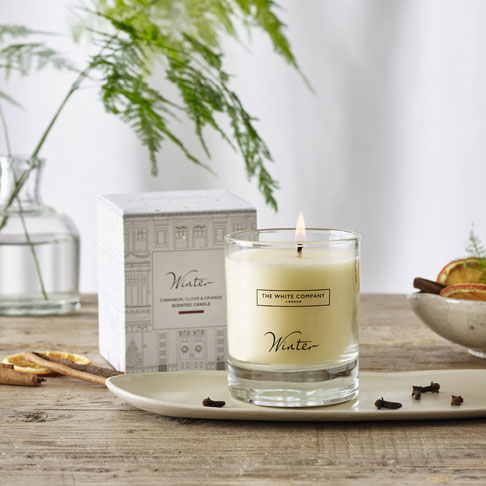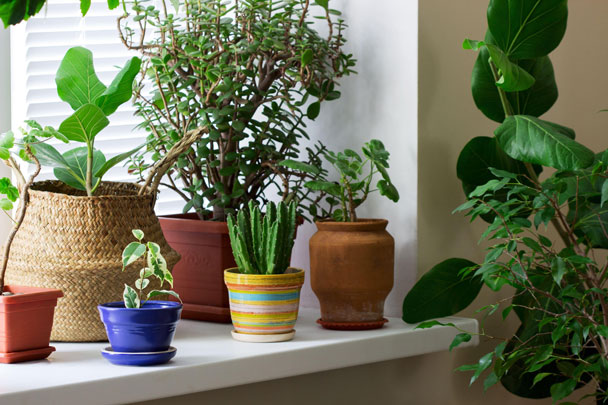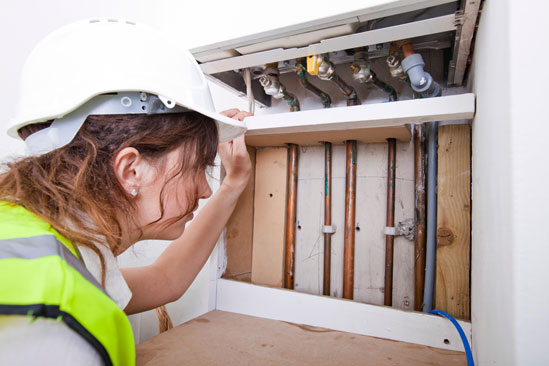And you’ll be so much happier too, says Sam Wylie-Harris.
As the saying goes, home is where the heart is – and it’s amazing how a little bit of love and attention around the house can improve your wellbeing.
We’re not just talking the typical new year clear-out, deep-cleans and getting organised. But the little things that make all the difference.
From finishing touches like switching your succulents around, grouping plants differently, or hanging them in a different space where there’s plenty of light – and then wondering why in the world you didn’t place them there in the first place, when you notice the happiness it brings every time you walk in the door. This same principle can apply with so many things.
Here’s how to give your home – and yourself – a happiness boost to see you through the rest of winter…

1. Go through your photos and refresh your favourite pictures
Whether you have a nest of photo frames or one or two on a shelf, those moments you’ve captured hold a special place, and it’s funny how we forget to update our displays to reflect what’s going on in our lives right now.
Alternatively, take time out to reflect and look back on the past. Nostalgia makes us feel good and keeping old memories fresh in your mind will make your surroundings feel that much more special.

2. Move the furniture around
If the short gloomy days are getting you down, think about moving the sofa or your favourite cosy chair to face more daylight. Chances are it’s still in the same place as before the clocks moved back, when sunlight streaming through the window was more an irritant causing glare on the TV screen. Now, a little light therapy with a furniture switch-around could work wonders.

3. Cash in on calming candlelight
There’s a reason posh hotels and restaurants always have scented candles burning, no matter the time of day – they look and smell good, and evoke a feeling of wellbeing and happiness. And don’t forget, you can always use LED pillar candles or votives to great effect, especially if you’ve got young kids and prefer to avoid flames.

4. Style up soft materials and layer blankets with cushions, throws and fleeces
Playing with texture and draping blankets along the back of the sofa, maximising those scatter cushions (think about being crafty and making a DIY pillow out of an old knitted jumper), and placing draft excluders at the base of the door (again, being imaginative and using a little’uns soft cuddly toy they’ve grown out of can bring smiles all round) will make everything feel that much cosier and welcoming.

5. Sort out your summer wardrobe
It’s hardly surprising January is the busiest time of year for booking a holiday – it’ something to look forward to and makes us feel good. But even if you haven’t got round to topping up your happiness levels with thoughts of far-flung places, or a big holiday is off the cards this year, sorting your clothes out will. Now’s the perfect time to shift through summer stuff and edit out anything you know you’re never going to wear again… Oh-so satisfying.

6. Pencil in a reading hour
So many of us love reading, but it’s not always easy to find the time. Snuggling down with a good book is a brilliant form of escapism though, and regular readers say it relaxes them, and helps them feel less stressed and depressed.
According to a survey by Worldbooknight, adults who read for just 30 minutes a week are 20% more likely to report greater life satisfaction. Plus it’s a great excuse to refresh your bookcase, or rearrange those glossy magazines, and get to grips with that novel you squirrelled away years ago.

7. Plant life
We’ve touched on sprucing up your succulents, but don’t forget how mood-boosting houseplants will give your home a whole new look and feel. From a mini herb garden (easy to grow and great for kitchen windowsills) to pots of lavender (excellent for easing stress and aiding sleep), to a Peace Lily (easy to care for and cited as one of the best indoor plants for cleaning and moisturising the air), all greenery looks gorgeous and will breathe new life into any room.









